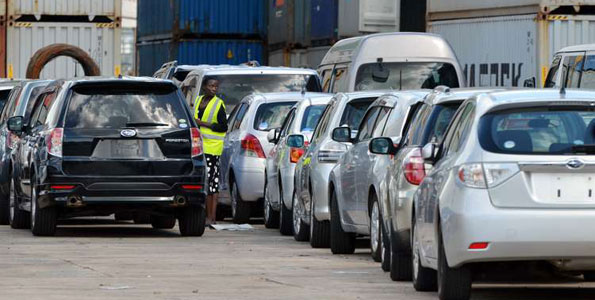It is safe to say that most of us seemed happy to see the back of 2021. 2022 started on a promising note with a lot of interesting things occurring from an automotive standpoint which may result in an even more interesting revelation in the coming months.
For close to 100 years, manual transmissions were the only option for drivers until the Sturtevant brothers of Boston attempted the first automatic transmission in 1904.
The data, released by the Society of Motor Manufacturers and Traders (SMMT), shows that 40 per cent of all new cars registered in 2017 featured an automatic gearbox, double the proportion from 2007, with consumers attracted to the comfort and simplified driving inherent in the technology.
A report revealed by the Automobile Association shows that the number of people in demand for cars with automatic gearboxes has almost doubled in the past five years, going from 9.9% in 2014 to 18.6% in 2019. The production of automatic cars increased as a result of simplicity and convenience.
 The emergence of the world’s first pandemic in over a century, COVID-19, has caused extreme disruption to automotive supply chains. A combination of workforce infections, economic slowdown and a global shortage of vital semiconductors meant that several automakers and manufacturers were forced to idle production and close plants.
The emergence of the world’s first pandemic in over a century, COVID-19, has caused extreme disruption to automotive supply chains. A combination of workforce infections, economic slowdown and a global shortage of vital semiconductors meant that several automakers and manufacturers were forced to idle production and close plants.
After a 43% decrease in sales, Ghana’s auto market started showing signs of recovery in September 2021, with reports of 344 units sold (-5%), leading year to Date sales at 3,324 units, a 4.2% decrease in sales compared to 2020.
The efficiency of automobiles is probably inherent in the single most important factor sculpting automobiles and their markets as well as transmissions too.
 According to Finance Minister, Ken Ofori- Atta, the Ghana Automotive Development Programme under the Strategic Anchor Industries Initiative, continues to attract investment from global vehicle brands. Global brands Nissan, Volkswagen, Toyota, Peugeot and Sinotruck have all set up assembly plants in Ghana, joining local car maker Kantanka, thereby ushering in a new era for Ghana’s automotive industry. I must add that they need a lot of policy support for this to become a success, but Good times! I pray…
According to Finance Minister, Ken Ofori- Atta, the Ghana Automotive Development Programme under the Strategic Anchor Industries Initiative, continues to attract investment from global vehicle brands. Global brands Nissan, Volkswagen, Toyota, Peugeot and Sinotruck have all set up assembly plants in Ghana, joining local car maker Kantanka, thereby ushering in a new era for Ghana’s automotive industry. I must add that they need a lot of policy support for this to become a success, but Good times! I pray…
This quarter was supposed to be the year for auto production, Instead, the surge in Covid cases, especially in Southeast Asia has caused a new round of parts shortages and auto plant shutdowns around the globe. This was followed by the Delta variant which led to the reduction of vaccines, shutdowns and more stay at home orders as a result of massive job losses affecting the sales of auto parts.
To narrow it down more, in Ghana, the Cedi has now been declared the worst performing currency according to Bloomberg, in more plain language, the Ghana Cedi is completely in tatters! Ratings from Fitch and S&P also saw the Cedi rating falling further to junk this month. As to how this has affected the automobile industry, your guess is as good as mine!
The world is becoming more unbalanced, and Ghana must look forward to adjusting to the current times and systems for the betterment of the automobile industry as a major economic player in the growth and development of a country.




